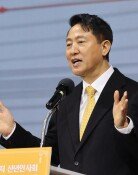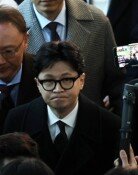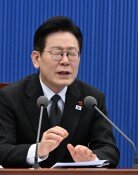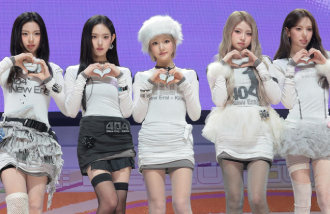Korean steel exports to U.S. drop 17%
Korean steel exports to U.S. drop 17%
Posted April. 18, 2025 07:33,
Updated April. 18, 2025 07:33

South Korea’s steel exports to the United States fell by more than 16% year-over-year in March, with aluminum exports also down nearly 5%, marking the first concrete signs of damage to the Korean metals industry since Washington reimposed tariffs on imported steel and aluminum.
The sharp drop comes less than three weeks after the renewed U.S. tariffs took effect, highlighting the swift and tangible impact on one of Korea’s key export sectors and deepening concerns over broader economic fallout.
On the 17th, an analysis of the Korea International Trade Association (KITA) data by The Dong-A Ilbo revealed that South Korea's exports of 153 steel items subject to U.S. tariffs totaled $341.34 million in March 2025, down 16.6% from a year earlier. Exports of 145 aluminum items—four of which overlap with steel products—also fell by 4.7% to 96,844 metric tons.
Since March 12, the United States has imposed a 25% tariff on steel, aluminum, and derivative products, with duties on derivative goods calculated based on their steel or aluminum content. While concerns had been mounting, the confirmation of an actual decline in such a short time frame underscores the urgency of the situation. Analysts warn that as additional item-specific or reciprocal tariffs take effect, Korea’s export-dependent economy could face significant headwinds.
Already, the outlook for the South Korean economy has dimmed. The Bank of Korea (BOK) recently signaled a possible contraction in the first quarter of 2025, with its latest report suggesting that GDP growth may fall below 0.2%—down from its earlier February projection—and warned that negative growth cannot be ruled out. On Thursday, the BOK’s monetary policy board held its benchmark interest rate steady at 2.75%.
The global trade environment is also expected to deteriorate. The World Trade Organization (WTO) revised its October 2024 forecast for global goods trade growth in 2025, lowering it from 3.0% to 2.8%, citing the broader-than-expected consequences of the new U.S. tariff regime. BOK Governor Rhee Chang-yong struck a cautious tone, warning that the February projection of 1.5% annual GDP growth for Korea may now be overly optimistic. “Given the Trump administration’s policies on reciprocal tariffs, China-specific duties, product-specific levies, and the proposed 10% blanket tariff, we must seriously reconsider our outlook,” he said.
세종=정순구기자 soon9@donga.com






![[단독]‘이적설’ 김민재 前소속 연세대 “FIFA, 기여금 수령준비 요청”](https://dimg.donga.com/c/138/175/90/1/wps/NEWS/IMAGE/2026/01/30/133259892.4.jpg)
